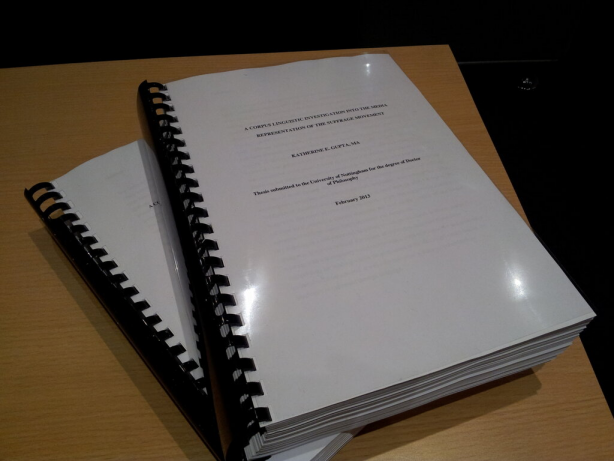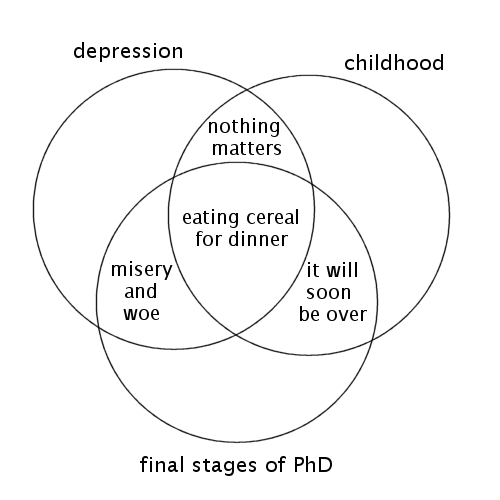I had my viva last week and passed with minor corrections. So I am now Dr Kat.
On the whole it was a really positive experience – I was only in there for about 1hr 45 minutes and both of my examiners said at the start how much they enjoyed reading my thesis and how creative it was. My internal examiner said at the start that it was going to be more of a chat and that’s pretty much how it felt.
Both of my examiners are experienced researchers and I think that was reflected in their examination style – they weren’t out to win their spurs but instead were really engaged with my work. They started off with a few general questions then we went through the thesis chapter by chapter. My chair was fantastic too – she was so calm and when I waited in her office after my viva while the examiners conferred she was reassuring about my performance.
I’d prepared a list of anticipated questions with bullet point responses – both viva classics and tricky things I was prepared to discuss – but interestingly, those didn’t really come up. I was most worried about Chapter 5 as that’s the most “original” (read: Kat discovers something original, goes off on a wild ride and drags the reader with them) and, I feel, my argument could have been more convincing – instead, they really liked it! There’s a section of close analysis in that chapter I wasn’t happy with and, indeed, debated taking out right until my submission date, but my external made a point of how much he liked it and would have liked to have seen more such analysis. Instead it was a section of Chapter 6 and what I’d called one of the named discourses in Chapter 7 that they paid most attention to. I’m not terribly attached to those things so explained why I made that decision, what I was trying to show and accepted their suggestions.
One of their criticisms was that I’m far too modest in my conclusion and can afford to make a much bigger deal about my research than I did. As my external pointed out, it’s a nice problem to have – rather than trying to inflate relatively minor findings, I apparently have this original, ambitious research that I can be proud of. They’re also both keen for me to publish findings and we talked a bit about publication strategies. I then left the room with the chair while they reviewed the viva, and after about ten minutes I was allowed back in to be told the result. They let me go off for a few minutes to make phonecalls, and when I got back my supervisor was there with a bottle of fizz.
I’d spent a few anxious nights googling things like “UK viva failure rates” and my friends had cheerfully shared viva horror stories (5 hour long vivas; examiners hated the thesis; examiners expounded on their theory rather than engage with the candidate’s work). While I wouldn’t say that I’d be thrilled to have another viva (at least not immediately – no offence to my examiners!), it wasn’t the traumatic experience I’d half anticipated. I’m not sure I’d go as far as my supervisor’s claim that she enjoyed hers, but I did find it rewarding to discuss my work with other people who were familiar with it and liked it.
Right, time to crack on with those corrections…


